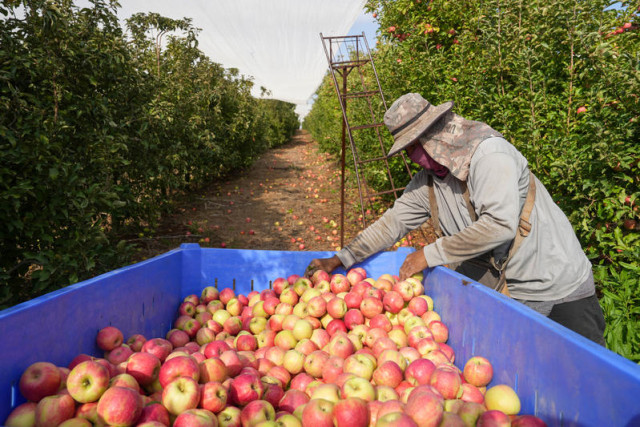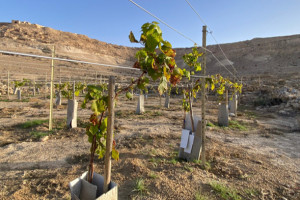Innovative Israeli process transforms apple waste into nutrient-rich ingredient

The global apple market has expanded by nearly 50% over the past two decades, yet an estimated 15–20% of apple harvests worldwide are discarded due to cosmetic defects and other minor flaws. This results in significant food waste globally, with Israel alone discarding nearly 20,000 tons of apples each year.
Prof. Ofir Benjamin of Tel-Hai College Department of Food Science in the Israeli northern city of Kiryat Shmona, began addressing this food waste challenge by teaming up with Dr. Asaad Safadi, CEO of the Alsharq packing house in Majdal Shams, a Druze town in Israel's Golan Heights. Together they developed an innovative method to transform apple industry waste into a nutrient-rich powder food ingredient.
“This innovation has several key aspects,” Benjamin told Ynet News. “First, sustainability – directly addressing food waste by maximizing the use of the fruit. Second, health – the powder is rich in essential nutrients and offers a natural alternative to synthetic additives used in today’s food industry. Third, innovation – the process preserves the fruit’s nutritional value. Finally, the economic potential is enormous, creating new opportunities for the global food sector. We already have interest from international companies,” he explained.
The Israel Innovation Authority has already donated NIS 3 million ($800,000) for the innovative project.
“This solution encourages sustainable farming, minimizing waste and economic losses,” Safadi said. “Our collaboration with academia has opened the door to new possibilities for apples and, later, other crops.”
The team plans to set up a production facility to scale the innovative process, with the long-term aim of positioning Israel as a global leader in food-waste utilization. The initiative is already being showcased as a model for future food-tech ventures at the upcoming National Food Institute in Kiryat Shmona.
Israel’s Ministry of Agriculture and Food Security recently unveiled strategic plans to steer the country toward greater food self-reliance, against the backdrop of global boycott calls over the Gaza War. “The goal is to prepare for the next crisis before it begins, shifting from a reactive approach to a preventive approach based on data and forecasts,” said Yuval Lipkin, head of the Israeli Food Security Administration.
Israel has been struggling for years with excessive levels of food waste, alongside high poverty rates among its most vulnerable socio-economic groups.
In 2020, more than one-third of all food produced in Israel (35%) went to waste, according to Leket Israel’s 6th annual Food Waste and Rescue Report. This level of waste costs the country an estimated NIS 19.1 billion ($6 billion), averaging NIS 3,600 ($1,140) per household.
“The increase in food waste and the widening of the food-insecurity gap that occurred during the year of the pandemic reinforce the need to use food rescue as one of the national policy tools,” the report stated.
A significant portion of food waste in Israel occurs during the high holidays, when families tend to purchase excessive amounts of food. The country’s relatively young population is also believed to contribute to its higher levels of food waste compared to other developed economies.

The All Israel News Staff is a team of journalists in Israel.
You might also like to read this:

















